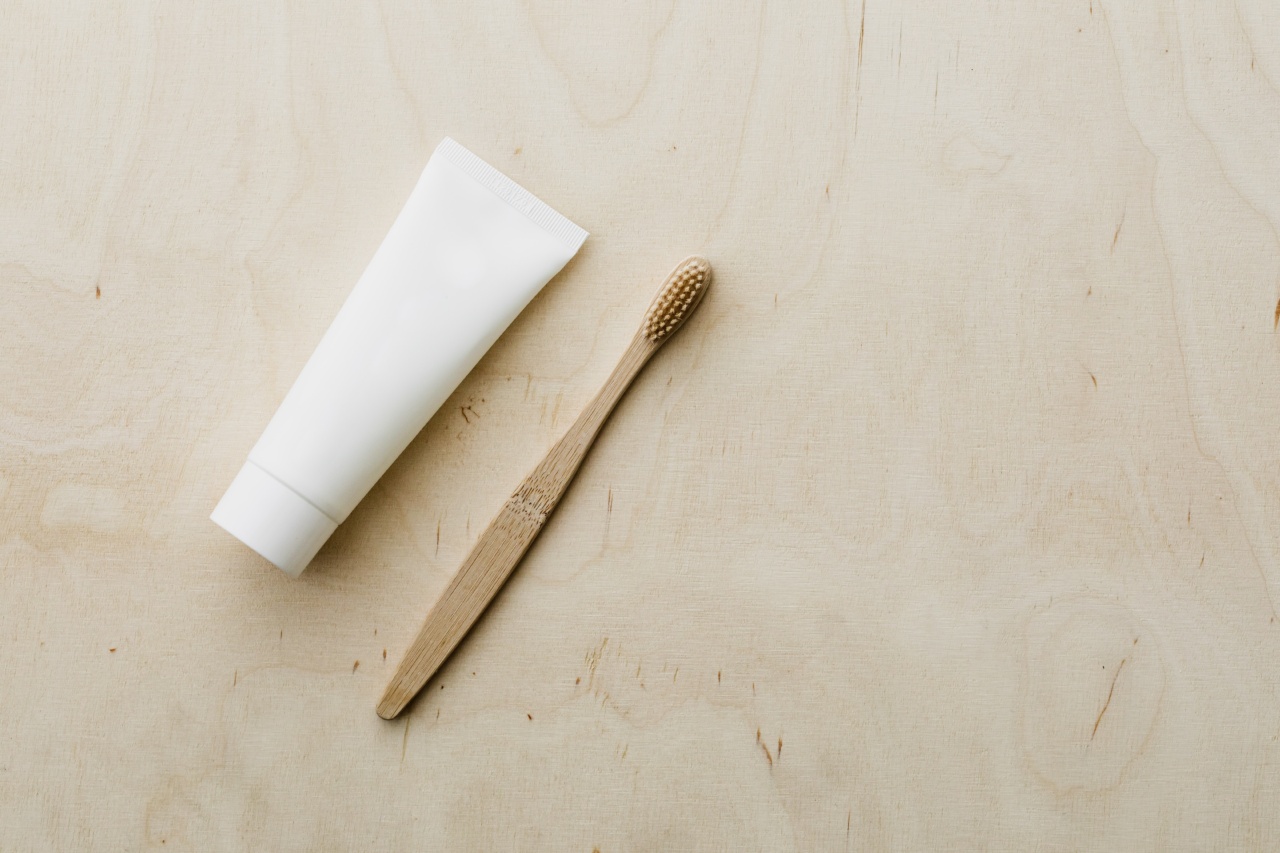Good oral hygiene is essential for maintaining healthy teeth and gums. Brushing and flossing are the two primary at-home dental care practices that most people follow religiously.
However, many individuals wonder if these daily routines are sufficient for maintaining optimal dental health or if professional cleanings are necessary. In this article, we will compare brushing and flossing with professional cleanings, exploring their benefits and limitations to determine which practice is better for overall oral health.
The Importance of Brushing and Flossing
Brushing and flossing are the cornerstone of a proper dental care routine. These practices help remove food particles, plaque, and bacteria from the surfaces of teeth, preventing cavities, gum diseases, and bad breath.
Benefits of Brushing
Brushing your teeth twice a day with a soft-bristled toothbrush and fluoride toothpaste offers numerous benefits:.
- Removes plaque: Brushing helps remove the sticky film of bacteria known as plaque, which can lead to tooth decay and gum disease.
- Prevents cavities: Regular brushing significantly reduces the risk of cavities by eliminating plaque and reducing the acidity in the mouth.
- Freshens breath: Brushing removes bacteria and food particles responsible for bad breath, leaving you with a fresher breath.
- Strengthens teeth: The fluoride present in toothpaste helps strengthen tooth enamel, making teeth more resistant to decay.
Benefits of Flossing
Flossing, when performed once a day, offers additional benefits that brushing alone cannot provide:.
- Removes plaque between teeth: Brushing often misses the tight spaces between teeth, but flossing helps remove plaque and food debris from these areas.
- Prevents gum disease: Flossing helps remove plaque along the gumline, reducing the risk of gum disease (gingivitis and periodontitis).
- Enhances oral health: By eliminating bacteria and plaque from difficult-to-reach areas, flossing promotes overall oral hygiene.
Limitations of Brushing and Flossing
While brushing and flossing are essential, they have certain limitations:.
- Inability to reach all areas: It can be challenging for a toothbrush or floss to reach certain areas, especially molars, tight spaces, and below the gumline.
- May not remove all plaque: Even with meticulous brushing and flossing, some plaque can remain on tooth surfaces and potentially harden into tartar.
The Role of Professional Cleanings
Professional dental cleanings, also known as prophylaxis, are performed by dental hygienists or dentists. They involve a comprehensive cleaning of the teeth, gums, and oral cavity.
These cleanings offer several advantages that complement the daily oral hygiene routine:.
Plaque and Tartar Removal
During a professional cleaning, dental professionals use special tools to thoroughly clean surfaces and remove any accumulated plaque and tartar. This helps in reducing the risk of cavities and gum disease.
Gum Health Assessment
A dental professional will examine your gums during a cleaning to check for signs of gum disease. They will measure the spaces between your gums and teeth (known as pocket depth) to evaluate the presence or progression of gum disease.
Early Detection of Dental Issues
Regular professional cleanings allow dentists to detect dental problems early on.
They can identify issues like cavities, oral cancer, gum disease, and even indications of systemic health conditions, due to the thorough examination performed during cleanings.
Surface Stain Removal
Professional cleanings often involve polishing the teeth to remove surface stains caused by certain foods, beverages, smoking, or other factors. This can enhance the appearance and brightness of your smile.
Fluoride Application
During a professional cleaning, fluoride treatment is often provided to strengthen tooth enamel and reduce the risk of cavities. This is particularly beneficial for individuals at higher risk of tooth decay.
The Importance of Regularity
To maintain optimal oral health, a consistent dental care routine that includes both at-home practices and professional cleanings is essential.
While brushing and flossing should be done daily, professional cleanings should typically be scheduled every six months. However, individuals with specific oral health concerns may require more frequent cleanings as advised by their dentist.
Conclusion
Both brushing and flossing, along with regular professional cleanings, play crucial roles in achieving and maintaining optimal oral health.
While brushing and flossing remove plaque from tooth surfaces and prevent cavities, professional cleanings offer additional benefits like professional plaque and tartar removal, gum health assessment, early detection of dental issues, and surface stain removal. Ultimately, the combination of daily oral hygiene practices and professional cleanings provides the best defense against tooth decay, gum disease, and other oral health problems.

























